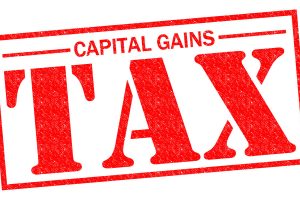Readers might take a look at the two presidential campaign websites to see which candidate appears to understand land issues best (or if at all).
Tax policy is often used by the government to discourage and encourage certain behaviors. How each of us defines the best interest of the country determines what our tax-policy preferences are.
But as a general exercise in seeing what we think, what are your opinions on the following “land issues,” as they relate to tax policies:
1. Capital gains rate for small (say under $2 million) land investments? Lower, higher, same?
2. Capital gains rate for large land investments? Lower, higher, same?
3. Do more, less, or same to help second-home ownership?
4. More generous, less generous, or same federal tax benefits for conservation-easement donation?
5. Make it easier for individuals to put retirement savings into land through an IRA and other vehicles?
6. Should certain types of land improvements be expensed rather than depreciated? Is there a public benefit to that position?
7. Should the dealer tax policy be relaxed, stay the same, or tightened?
8. Should division be encouraged, discouraged, or left alone? What types of division?
9. Should 1031 rules be changed to allow/promote deliberate sequential exchanges?
10. Is there a public interest in promoting small-farm ownership and production that would justify tax incentives for such owners and their production?
11. With the backout of timbering on public lands, should tax incentives be offered to private landowners to mangage woods for timber production and provide a break on timber-derived taxable gain?
12. Should building and use restrictions on floodplain, critical habitat (for endangered species) and wetlands be considered a taking and therefore made eligible for tax assistance?
Other ideas? For and against.
This content may not be used or reproduced in any manner whatsoever, in part or in whole, without written permission of LANDTHINK. Use of this content without permission is a violation of federal copyright law. The articles, posts, comments, opinions and information provided by LANDTHINK are for informational and research purposes only and DOES NOT substitute or coincide with the advice of an attorney, accountant, real estate broker or any other licensed real estate professional. LANDTHINK strongly advises visitors and readers to seek their own professional guidance and advice related to buying, investing in or selling real estate.









I own19 acres of vacant woodland since 1963,That is 45 years. If I sell it todayn I will pay an enormous capital gains tax .I do not know whether the dollar value of 1963 can be adjusted to the dollar value of 2008. for the calculation.
The land is still the same physically,property rights to it have practically disappeared by all those “green”laws.
Other countries consider the sale afte r+/- 20 years to be exempt from capital gains tax
Since small business is the engine that currently powers America, I don’t see why small investors aren’t given more impetus to power the recovery we now need. With the stock market, credit markets & banking in disarray, this is the perfect time for small investments in land. Tax laws should make this as easy as possible for small property owners. Secondary home markets too. Consideration could be given to folks who invest in either a certain dollar value or a limited number of properties. 1031’s are good but could be made better and more easily faclitiated. I’m not advocating a wholesale opening of floodgates that would then create a ‘land bubble’ just some tweaking that would make investing in land an attractive prospect and a viable alternative for some smaller investor/owners.
I would propose an exemption from capital gains taxes for raw land held for more than 25 years.
You bring up many issues that we should be considering to help fuel a recovery in the housing market and the broader economy. If done correctly, many times tax rate cuts can lead to increases in tax revenues. Tax rate cuts have the effect of stimulating the markets to turn over more quickly, thereby increasing the number of taxable events. The converse is true as well. Tax rate increases slow the pace of the market and decrease the taxable events. The logic behind this is the good ole profit margin…The lower the tax burden on a particular transaction, the more likely a seller is to transact a property at a lower price…everybody is effected by the profit motive, no matter how you acquire a property. That invisible hand can help our recovery, if we just make sound enough decisions to allow it to happen. Any change that will decrease government regulation, interference, and taxes will be helpful in the months and years to come. Any policy that allows greater freedom of the market to work is generally helpful.
Our need to regulate markets arises from our implementation of other, short-sighted or failed regulations. Make no mistake, taxes are a regulation on our ability to transact properties.
Our way of life depends upon some tax revenue being available for the common good. Our task is to find that point where the goods and services provided by the government is optimized with the tax burden on the individual. There is a natural ebb and flow to the process. With millions of variables acting on any given market, there is no way we can take into account everything that could happen given a particular course of action. We can only attempt to lighten the load on either side of the economic scale, or add weight to both sides. I propose it is much easier to lighten the scales. Seems to me those lighter scales will be easier to hand off to the next guy.